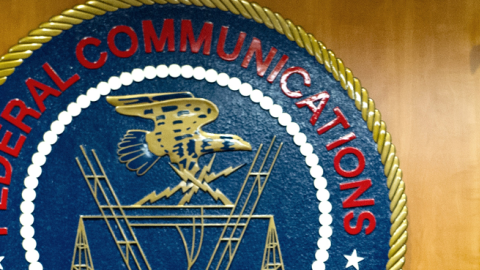American politicians of all stripes clearly see and oppose the abuses of the Internet abroad. But our government officials are not aware that the Federal Communications Commission, without statutory authority, is proposing to expand its taxation and regulation of the Internet.
The relationship between the Internet and government has become a useful barometer of personal and economic freedom. Oppressive governments use the Internet to oppress political enemies, censor ideas, and spy on citizens. The United Nations and other international organizations see the Internet as an untapped opportunity for tax revenues and regulations to support political favorites.
Of course Congress can and does pass symbolic laws to protect the Internet, such as the recent extension of the Internet Tax Freedom Act that prohibits new state and local taxes on broadband access. Congress is eager to block state and local tax collection on the Internet on the reasonable theory that taxes will harm the Internet, one of the few engines of growth in our otherwise recession-prone economy.
Yet Congress is oblivious to Federal Communications Commission efforts to undermine the spirit if not the letter of ITFA by extending substantial new federal fees on broadband access. These fees could be as harmful, if not more so, than any that state and local governments might imagine. Yet many in Congress, unaware of the fees that might be applied to the Internet, applaud the FCC.
Under its “Open Internet” or “network neutrality” proceeding, the FCC would regulate the Internet and broadband service providers with rules similar to those that courts have not once but twice ruled unlawful. By statute, the FCC regulates telecommunications services, not Internet services. Rather than wait for Congress to give it authority to regulate Internet services, the FCC asserts that power for itself by some imaginative interpretation of the Communications Act.
One set of proposals considered by the FCC would classify Internet services, or at least Internet access services, as “interstate telecommunications services” bringing the regulation of those services exclusively to the FCC.
The FCC imposes fees of 16.1% on interstate telecommunications services that will generate more than $8 billion in federal universal service funds in 2014. Additional FCC fees on interstate telecommunications services raise $1 billion for federal telecommunications relay services. Although Congress mandates the general nature of the federal universal service fund and telecommunications relay services, it is the FCC alone that sets the budget size of the funds and develops the fee structure to raise receipts for the funds.
Even with all of its power, the FCC does not have the money to fund all of the new programs it seeks. For example, just in the past year, the FCC announced an ambitious multi-billion program to connect schools and libraries with Wi-Fi. Other advocates seek expansion of the low-income program. But where can the FCC find funds for new social programs not required by statute?
The FCC’s network neutrality proceeding may easily provide the answer. By classifying broadband access services as “interstate telecommunications services,” those services would suddenly become required to pay FCC fees. At the current 16.1% fee structure, it would be perhaps the largest, one-time tax increase on the Internet. The FCC would have many billions of dollars of expanded revenue base to fund new programs without, according to the FCC, any need for congressional authorization.
If the FCC succeeds in classifying some or all of broadband services as interstate telecommunications services, it would effectively exclude its bureaucratic rivals in both the states and federal government from competing to regulate and to tax the Internet. State and local governments do not have the authority to tax or regulate interstate telecommunications services. Moreover, the Federal Trade Commission, which increasingly seeks to regulate the Internet, has no jurisdiction over common carriers or “telecommunications services.”
To make their proposals palatable, network neutrality advocates suggest that the FCC might in its discretion “forbear” from various regulations. But FCC forbearance takes years with uncertain outcomes. And the FCC likely does not have the discretion to find that some interstate telecommunications services pay fees and others do not. Inevitably, network neutrality with “telecommunications services” will lead to new fees and regulations that will harm the Internet.
It is easy to see government abuses of the Internet abroad. It is time we took a closer look at home as well.















